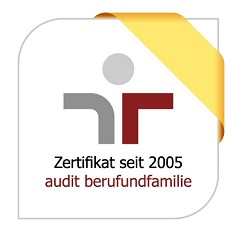Postdoctoral Researcher in Pediatric Glioma Research
Reference number: 2025-0124
- Heidelberg
- Full-time
- Pediatric Glioma Research

“Research for a life without cancer" is our mission at the German Cancer Research Center. We investigate how cancer develops, identify cancer risk factors and look for new cancer prevention strategies. We develop new methods with which tumors can be diagnosed more precisely and cancer patients can be treated more successfully. Every contribution counts – whether in research, administration or infrastructure. This is what makes our daily work so meaningful and exciting.
For the next possible date the Divisoin of Pediatric Glioma Research at the German Cancer Research Center is seeking a
Our research group is investigating the biological mechanisms and genetic alterations of pediatric brain tumors, in particular low- and high-grade gliomas. Our goal is to develop new, tumor-biology-tailored therapeutic approaches to improve treatment and reduce side effects. To this end, we use state-of-the-art genomic, epigenomic and functional technologies such as next-generation sequencing, CRISPR/Cas9 and tumor models. A particular focus is on translating our research results into clinical practice, including through our participation in the international INFORM and MNP2 molecular diagnostic studies.
Your Tasks
We are seeking a highly motivated and qualified postdoc to join our team investigating the developmental origins and progression of pediatric low-grade glioma (pLGG). The selected candidate will play a critical role in planning and executing in vivo and in vitro (iPSC/organoid) experiments to elucidate the mechanisms by which pLGG-associated oncogenes drive glioma formation during specific developmental windows.
This is an exciting opportunity for a researcher looking to make a meaningful impact in the field of pediatric neuro-oncology by uncovering the developmental basis of glioma formation and identifying novel therapeutic targets.
- Develop and optimize murine models to introduce pLGG-relevant oncogenes and analyze the impact of these genetic alterations on brain development.
- Utilize single-cell RNA- and ATAC-sequencing approaches to map cell states and receptor-ligand interactions in glioma and normal brain tissue.
- Establish and maintain iPSC-derived brain organoid models in both standard 3D culture systems and microfluidic platforms that mimic neural tube development.
- Design and implement genetic perturbation assays
- Collaborate closely with computational biologists, clinicians, and other researchers to integrate findings into a comprehensive understanding of pLGG biology.
Your Profile
- PhD in Developmental Biology, Neuroscience, Cancer Biology, or a related field.
- Hands-on experience with mouse models, organoid culture systems and drafting animal applications are highly desirable.
- Expertise in molecular biology techniques, histological analysis, and single-cell sequencing.
- Strong analytical and problem-solving skills with experience in high-throughput genetic perturbation approaches.
- Ability to work independently and collaboratively within an interdisciplinary research team.
- Excellent communication skills and a track record of scientific publications.
To apply, please submit your CV, a cover letter detailing relevant experience, and contact information for three references.
We Offer
Excellent framework conditions: state-of-the-art equipment and opportunities for international networking at the highest level
Remuneration according to TV-L incl. occupational pension plan and capital-forming payments
30 days of vacation per year
Flexible working hours
Possibility of part-time work
Family-friendly working environment
Sustainable travel to work: subsidized Germany job ticket
Our Corporate Health Management Program offers a holistic approach to your well-being
Develop your full potential: access to the DKFZ International Postdoc Program and DKFZ Career Service with targeted offers for your personal development to further develop your talents
Are you interested?
Then become part of the DKFZ and join us in contributing to a life without cancer!
Dr. David Jones
Phone: +49 (0)6221/42-4675
Applications by e-mail cannot be accepted.
We are convinced that an innovative research and working environment thrives on the diversity of its employees. Therefore, we welcome applications from talented people, regardless of gender, cultural background, nationality, ethnicity, sexual identity, physical ability, religion and age. People with severe disabilities are given preference if they have the same aptitude.

